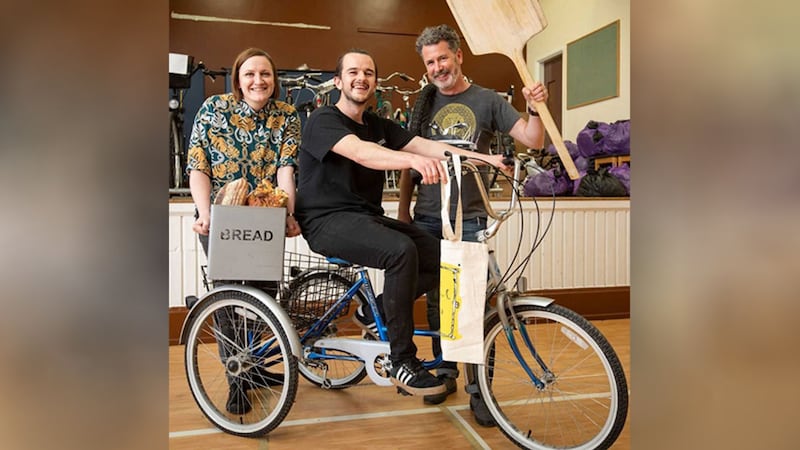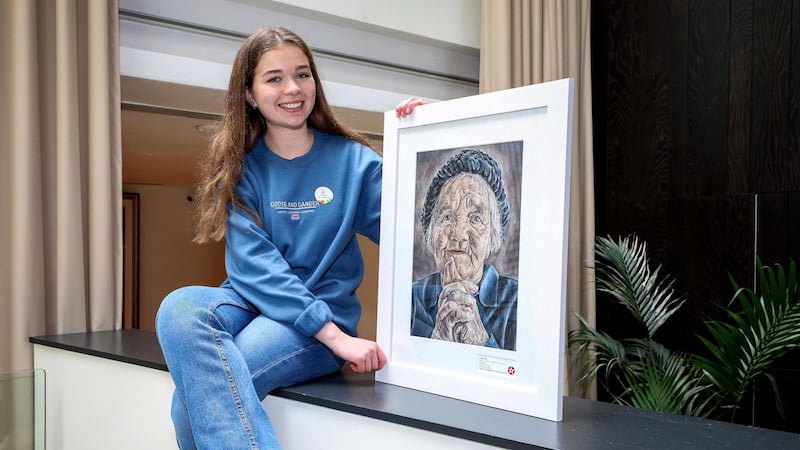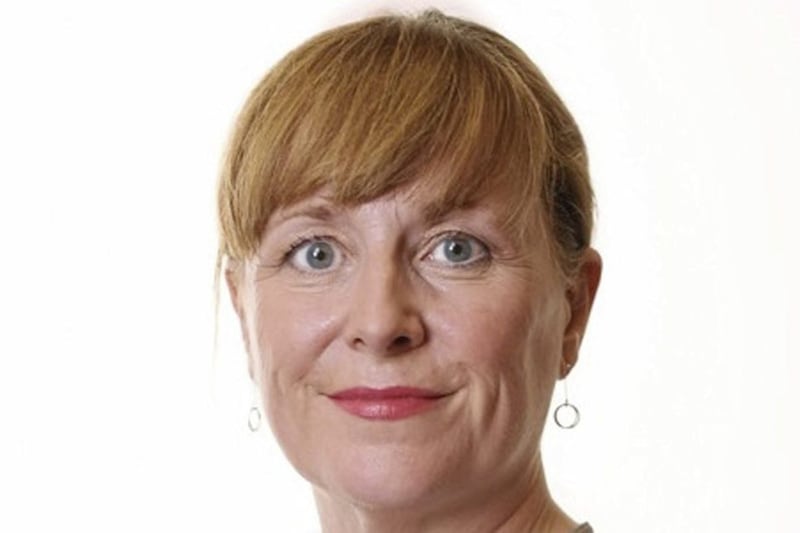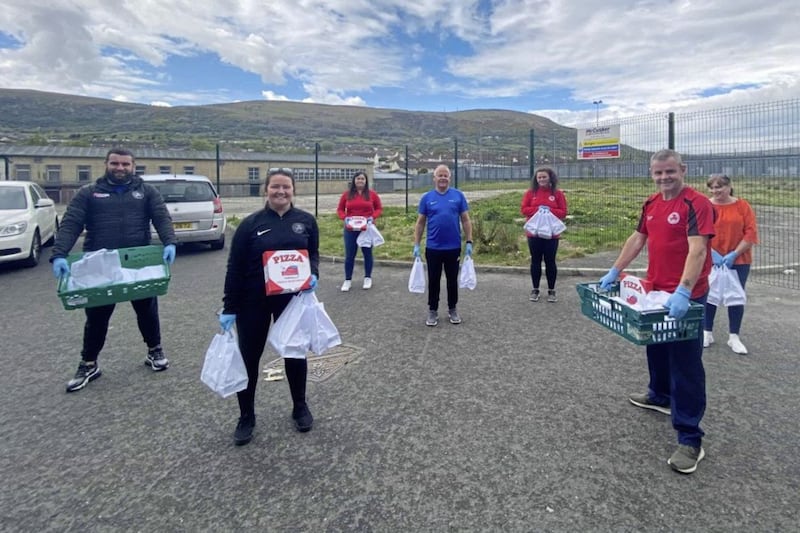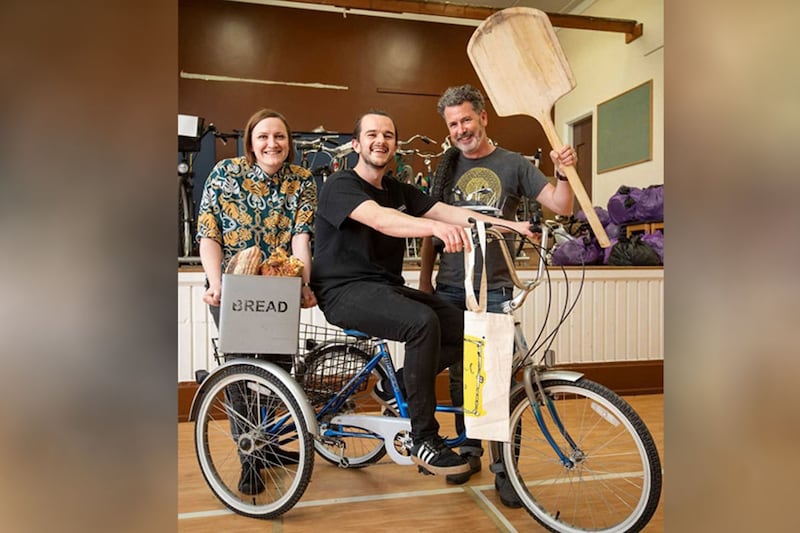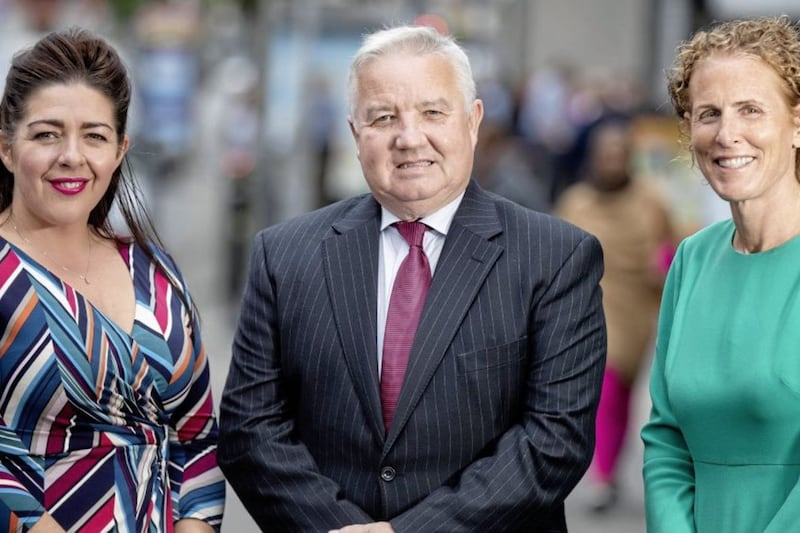How do you ask people to raise thousands of pounds without first knowing where the money will end up?
For one charitable foundation, it began with inviting 18 people to try out a new form of fundraising, known as a 'Circle of Change'.
Andrew McCracken, chief executive of the Community Foundation for Northern Ireland, said as far as he was aware the fundraising model had never before been attempted outside North America.
He said he was keen to try something new after several people told them they felt frustrated by the 'echo chamber' of public debate.
"People were saying to me that in this time of Brexit and Donald Trump they felt that they were living their lives in a bubble and they were only speaking to people who lived how they lived and thought how they thought," he said.
The foundation, which helps donors connect with important causes, brought together a diverse group of people including business leaders and a public relations director to a refugee and a woman who had been homeless.
The 'Circle of Change' group was as much about getting to know people from different walks of life as it was about money.
Over six months, the group met on several evenings to get to know each other and decide what causes were important to them.
"After three meetings we were getting deeper and deeper into everyone's story," Mr McCracken said. "By the fourth meeting we came up with themes around mental health and suicide, homelessness and mentoring."
Rather than choose specific projects to support, the circle fundraised then collectively decided where the money should go.
Mr McCracken said members of the circle visited 10 potential projects before deciding to support six organisations, including north Belfast-based Love Works Co-Operative.
He said although donors asked many questions about the new type of fundraising, the Circle of Change still managed to raise £45,000.
Funding was unrestricted and the circle aimed to support projects that may not otherwise have got financial support.
"Where it differs from many giving circles is the varied nature of the people who are part of the group - effectively becoming fundraisers and donors, no matter what their financial means or backgrounds might be, where everyone’s contribution is valued equally," he said.
The Community Foundation is now recruiting for the next Circle of Change group and anyone over the age of 18 can apply.
"We believe that the ripple effect of the Circle of Change will go way beyond the resources we raise and give; beyond even the great work that will be enabled in the organisations we will fund," he said.
Anyone interested in joining the next Circle of Change can contact Andrew McCracken at andrew@communityfoundationni.org
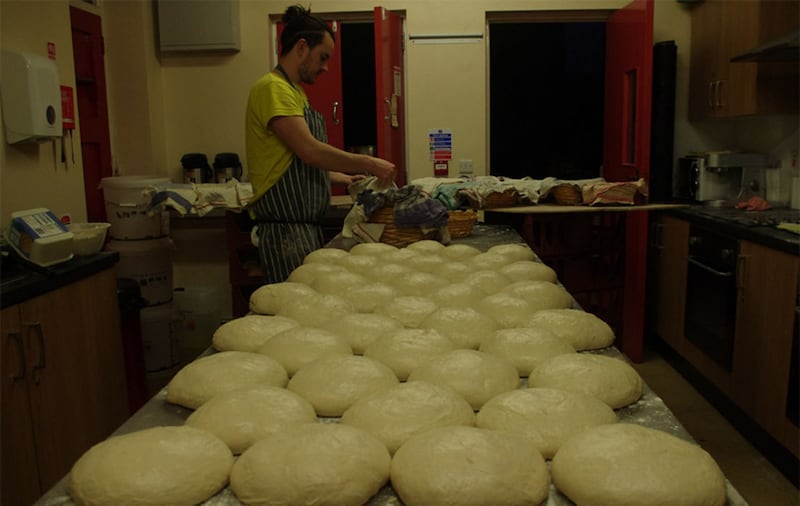
Love Works Co-Operative
"We try not just to sustain work and livelihoods but also sustain relationships"
The first project to gain Circle of Change funding is a workers' co-operative in north Belfast.
Love Works has brought together bakers, gardeners and bike fixers to forge a successful business.
Such businesses are rare in Northern Ireland but member Richard Higginson (39), who has lived in north Belfast for the last 10 years, said the co-operative aimed to give all its workers a voice while helping people who face challenges in finding paid work.
Based in the Macrory Centre at Duncairn Gardens, the co-op was formally set up at the end of 2015.
It has three main businesses - gardening and landscaping, a bakery and catering service including a weekly Saturday cafe at the Macrory Centre, and a bike repair project which also sells refurbished bikes.
The basis for the business came from a project Mr Higginson ran for Fortwilliam and Macrory Presbyterian Church. The church closed in October last year due to a falling congregation.
"The vision behind the project was to create an opportunity for, primarily young men, to gain skills as well as empowering them and helping them make better social connections," he said.
Mr Higginson said the project had a "restorative" ethos.
"We partnered with the Probation Board and Youth Justice Agency enabling some of the guys with community service orders to serve time," he said.
"The aim was that the process of them working in a garden or working on a bike that they would feel better within themselves and feel they could achieve something positive and have more self-belief that they could overcome some of the barriers (they faced).
"We ran those projects for a couple of years and could see the income-generating potential. The two main projects at that stage was bike repair and a community gardening project."
He said those involved in the project were aware the church was due to close and decided to set up an independent group.
"As a co-operative, it operates mainly to facilitate the workers and the workers actually own the business and become directors. They have the decision-making power," he said.
Mr Higginson said the co-op aims to target young men who are having difficulties finding a job because they may have a criminal record, are struggling with drug and alcohol addictions, are homeless or have poor mental health.
"We try not just to sustain work and livelihoods but also sustain relationships as well and social well-being - that we support each other to overcome those barriers," he said.
"We have an open door policy to new volunteers providing we have the capacity to manage it."
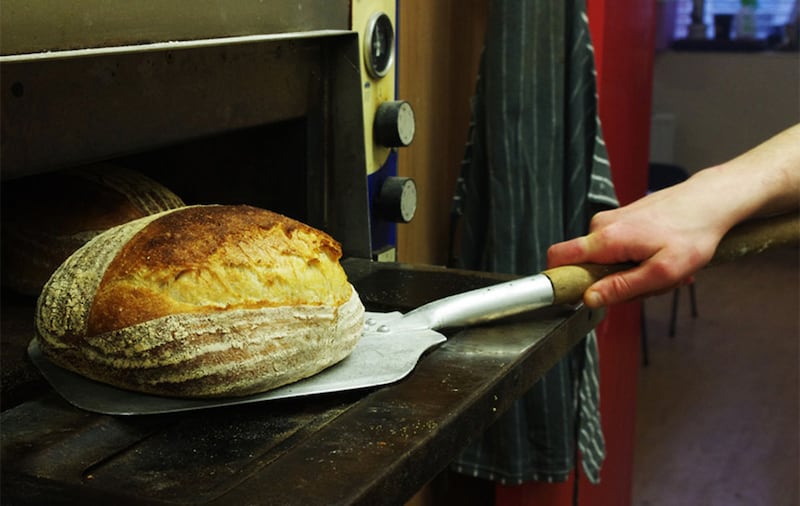
The co-op takes on volunteers who stay with them for three months to get to know all areas of the business.
"They can get to know the operations and get to know us and see if it's a working environment they'd like to stay in," he said.
"Some of them just know from the start that they have one or two particular areas of interest and they stick with that but they have the opportunity to try all three.
"They can be a volunteer member and not draw a wage, they can have a job elsewhere or maybe they're not ready to come off benefits yet."
Bread made by the co-operative is sold at Mike's Fancy Cheese on Little Donegall Street and at its Saturday cafe. Its gardening and landscaping business has also proved successful.
"We're certainly delighted with how things have been going," he said.
He said although the co-operative rarely applies for grants, since the business has grown six workers are now reliant on the business for their income.
The £7,500 it has been given by the Circle of Change will be used to help pay all workers a minimum wage and pay for baking equipment and training.
"Until recently we have not been able to afford to pay each other the minimum wage," he said.
He said the co-operative has a 'high season' between March and September but struggles financially outside those months.
"By paying our staff we are achieving our social impact aims in terms of the financial well-being (of staff)," he said.
